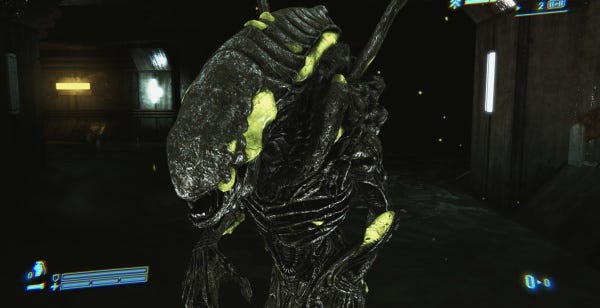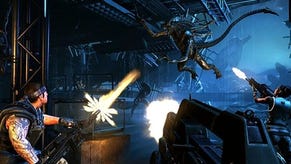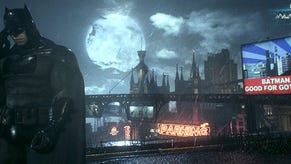Ripleying Yarns: More On Colonial Marines' Strange History
OK, everyone's probably bored of this by now, but if you're still wondering just how the makers of Borderlands 2 could get Aliens: Colonial Marines so very wrong, more has emerged.
Kotaku's tracked down alleged sources close to the project, who tell the semi-familiar tale of Gearbox outsourcing ACM to Timegate in the wake of Borderlands doing so well. In theory Gearbox had been working on ACM for four years by that point, but allegedly what Timegate received was ""basically a hodgepodge" of assets which required an enormous amount of work to turn into anything like a game.
Later in the process, these sources allege that Sega were requesting a more Call of Duty-esque, manshoot experience, while writers from both studios were doing stuff on fly and the level designers had to race to adapt to frequent changes. On top of that, "You could not pick two companies whose general workflow is more diametrically opposed. Gearbox is used to 'work, work, work, iterate, iterate.' TimeGate is the exact opposite - they're always about shipping the product."
The now in-famous "in-game" demo which looked so much better than the rather murkier final game, meanwhile, was specially created to run on an ultra-powerful PC beyond the means of consumers. "We were told many times through demo production, 'Don't worry about performance, just make it awesome,'There was a reason [the demos] were never playable." I'm not personally sure that entirely explains why the final game was so dialled down, as a mid-range PC could muster far more than what we did get, but apparently what Timegate had made wouldn't run on PS3. For that reason, plus the rather important allegation that what Timegate had made was pretty rubbish, once Gearbox finally returned to ACM after shipping Borderlands 2, they felt they needed to change anything they could.
"Design elements were altered or redone entirely. It looks like a lot of [TimeGate's] assets remained intact, with the exception of lower-res textures and faster-performing shaders," alleges Kotaku's source.
Six years after being commissioned to make the game by Sega, allegedly Gearbox by this point felt they had to finish the damn thing by hook or by crook. So they did. And here's the kicker: "The game feels like it was made in nine months, and that's because it was."
With both Gearbox and Sega keeping tellingly mum about what went on, and Kotaku also reporting rumours that the studios behind the game are worried about being sued, this may be as close to the real story as we ever get. Sure, a bad game is a bad game and to some extent the reasons for that don't matter, but it's fascinating/horrifying to see just how convoluted and chaotic a high-profile, high-budget game can get.
Many more details, rumours and quotes in the original story.









